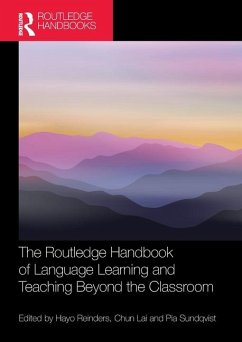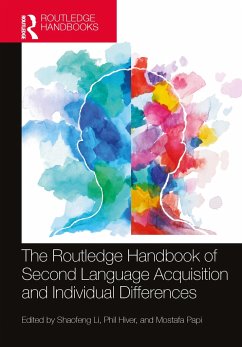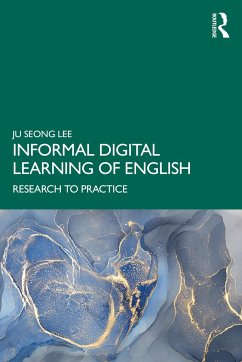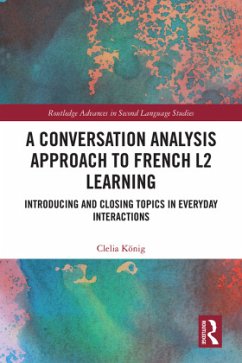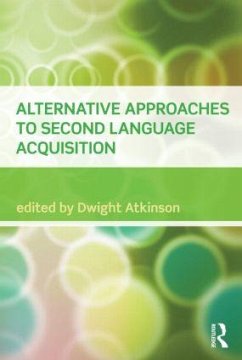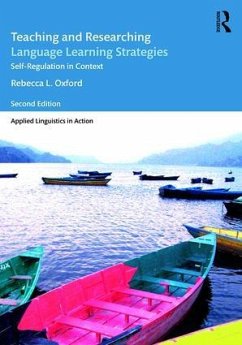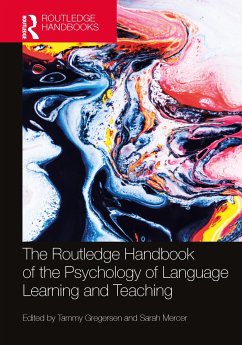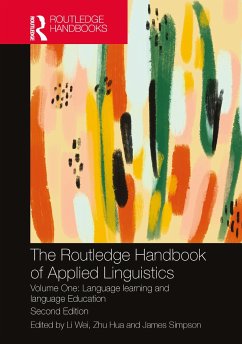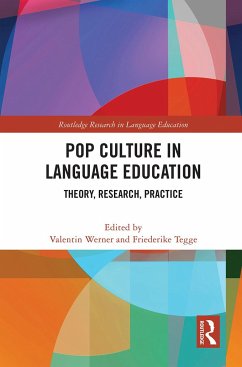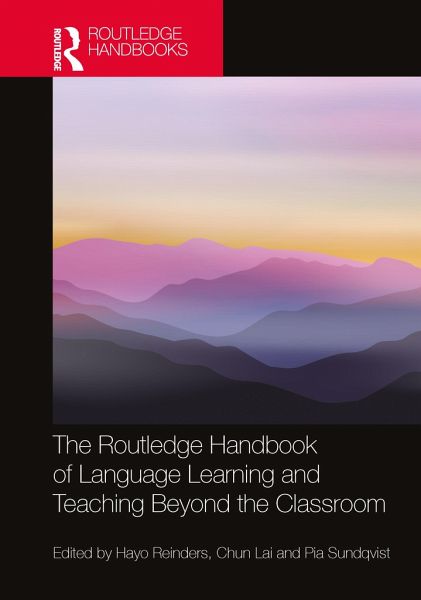
The Routledge Handbook of Language Learning and Teaching Beyond the Classroom
Versandkostenfrei!
Versandfertig in 6-10 Tagen
230,99 €
inkl. MwSt.

PAYBACK Punkte
115 °P sammeln!
Informal language learning beyond the classroom plays an important and growing role in language learning and teaching. This Handbook brings together the existing body of research and unites the various disciplines that have explored this area, in order to present the current state of knowledge in one accessible resource.Much of adult learning takes place outside of formal education and for language learning, it is likely that out-of-class experiences play an equally important role. It is therefore surprising that the role of informal language learning has received little attention over the yea...
Informal language learning beyond the classroom plays an important and growing role in language learning and teaching. This Handbook brings together the existing body of research and unites the various disciplines that have explored this area, in order to present the current state of knowledge in one accessible resource.
Much of adult learning takes place outside of formal education and for language learning, it is likely that out-of-class experiences play an equally important role. It is therefore surprising that the role of informal language learning has received little attention over the years, with the vast majority of research instead focusing on the classroom. Researchers from a range of backgrounds, however, have started to realise the important contribution of informal language learning, both in its own right, and in its relationship with classroom learning. Studies in the areas of learner autonomy, learning strategies, study abroad, language support, learners'voices, computer-mediated communication, mobile-assisted language learning, digital gaming, and many others, all add to our understanding of the complex and intersecting ways in which learners construct their own language learning experiences, drawing from a wide range of resources, including materials, teachers, self-study, technology, other learners and native speakers.
This Handbook provides a sound and comprehensive basis for researchers and graduate students to build upon in their own research of language learning and teaching beyond the classroom.
Much of adult learning takes place outside of formal education and for language learning, it is likely that out-of-class experiences play an equally important role. It is therefore surprising that the role of informal language learning has received little attention over the years, with the vast majority of research instead focusing on the classroom. Researchers from a range of backgrounds, however, have started to realise the important contribution of informal language learning, both in its own right, and in its relationship with classroom learning. Studies in the areas of learner autonomy, learning strategies, study abroad, language support, learners'voices, computer-mediated communication, mobile-assisted language learning, digital gaming, and many others, all add to our understanding of the complex and intersecting ways in which learners construct their own language learning experiences, drawing from a wide range of resources, including materials, teachers, self-study, technology, other learners and native speakers.
This Handbook provides a sound and comprehensive basis for researchers and graduate students to build upon in their own research of language learning and teaching beyond the classroom.



